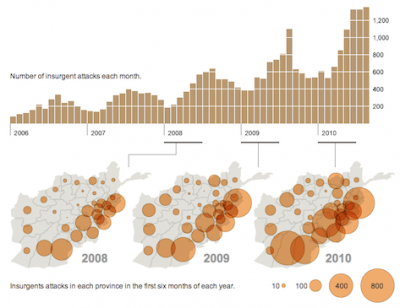By Shirin Sadeghi
New America Media
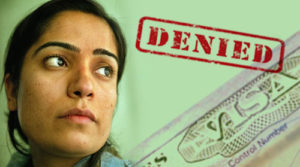
Malalai Joya was 26 when she became the youngest woman ever elected as a member of parliament in Afghanistan. Today, she is the country’s most famous woman – a political activist who was just denied a visa for a book tour to the United States because she is “unemployed” and “lives underground,” according to what she was told by the U.S. embassy officer who stamped the denial.
To watch a 2003 video of Malalai Joya, then in her early 20s, making a speech is to witness phenomenal courage and the power of speaking out. Joya, now 32, was an elected delegate to the Loya Jirga (an assembly to debate the proposed Afghan constitution) when she stood up and publicly criticised the room full of men.
Read More...The Afghan War is Brutal, Expensive, Unpopular, and Ineffective – So Why Are We Spending Billions on It?
March 3, 2011
It is no wonder that leading Afghan activist and former Member of Parliament, Malalai Joya, wants the U.S. and NATO out of her country. Having come face-to-face with the brutality of war and the power that U.S.-backed war criminals wield, Joya has been demanding an end to the occupation for years. In her book, A Woman Among Warlords, just out in paperback, Joya explains the situation of ordinary Afghans: “[w]e are caught between two enemies – the Taliban on one side and the U.S./NATO forces and their warlord allies on the other.” She goes on to say that “for our people, Obama is a warmonger, like Bush. He follows the same disastrous policies, only with much more determination and force.”
Read More...Nine boys collecting firewood to heat their homes in the eastern Afghanistan mountains were killed by NATO helicopter gunners who mistook them for insurgents, according to a statement on Wednesday by NATO, which apologized for the mistake.
The boys, who were 9 to 15 years old, were attacked on Tuesday in what amounted to one of the war’s worst cases of mistaken killings by foreign-led forces. The victims included two sets of brothers. A 10th boy survived.
Read More...Outrage at threat to secret shelters where women hide from death
February 9, 2011
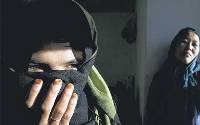
A child bride, forced to marry at 11, fled and took refuge in one of the shelters. (Photo: Getty)
By Jerome Starkey
in Kabul
The Scotsman
Secret shelters which protect women from murder, forced marriages and ritual mutilation will be turned into “virtual prisons” that make women less safe, under Afghan government plans to wrest control of them from local charities, women’s activists warned yesterday.
The exact whereabouts of the safe houses and the identities of the women who hide there are carefully guarded secrets, but proposals seen by The Scotsman would put government staff in charge and force them to inform police of anyone who goes inside.
Campaigners said the draft legislation was pandering to conservative male prejudices that shelters harbour prostitutes, and they warned it would roll back years of hard-won progress towards improving women’s rights.
Read More...By Jonathon Burch
Reuters Canada
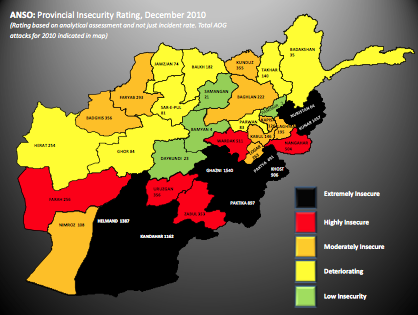
KABUL (Reuters) – Foreign military assertions that security in Afghanistan is improving are intended to sway Western public opinion ahead of a troop withdrawal and do not reflect the reality on the ground, a security advice group said.
“Indisputable evidence” that conditions are deteriorating included a two-thirds rise in insurgent attacks in 2010 compared with the previous year, according to the EU-funded organization, that advises aid groups on safety.
Read More...Nowhere to Turn: The Failure to Protect Civilians in Afghanistan
November 19, 2010
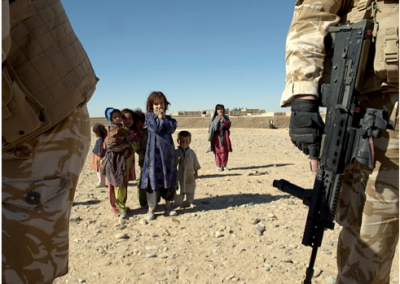
Protection of civilians must be at the heart of Afghanistan ‘transition’ strategy, warn aid agencies.
2010 is already the deadliest year in a decade for civilians, but risks could increase unless NATO takes immediate action
International military forces must take urgent steps to protect civilians caught up in the escalating conflict as they plan for the handover of responsibility for security to the Afghan government, warned leading aid agencies today (Friday 19 November 2010).
Twenty nine international and national aid agencies including Oxfam, Afghanaid and the Afghan Independent Human Rights Commission, have released a new report – Nowhere to Turn – which urges NATO to do more to improve the training and monitoring of Afghan national security forces during the transition period.
Read More...The plight of women in Afghanistan is no excuse for Western ”occupation” of the country, a leading Afghan opponent of the war and former MP has declared.
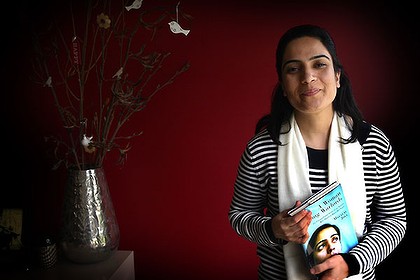 Photo: John Woudstra
Photo: John Woudstra
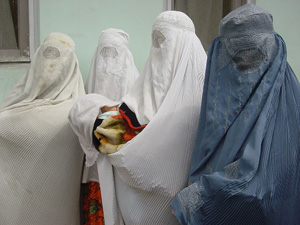
Women wait for child vaccinations in Faizabad, Badakhshan
© Salma Zulfiqar/IRIN
KABUL, 8 November 2010 (IRIN) – Afghanistan has climbed over a dozen places up the annual UN Development Programme’s (UNDP) Human Development Index (HDI) – from 181 out of 182 countries in 2009, to 155 out of 169 this year.
However, Afghanistan is still among the world’s 23 Least Developed Countries, according to the UNDP report: About 42 percent of Afghans are living in poverty; life expectancy at birth is 44.6; there is one doctor and two hospital beds for every 5,000 Afghans. Under-five mortality is 275 per 1,000 live births, and the maternal mortality rate is 1,400 per 100,000 births. Over half of Afghans do not have access to safe drinking water; 63 percent lack access to improved sanitation.
Read More...Security in Afghanistan Is Deteriorating, Aid Groups Say
September 11, 2010
By ROD NORDLAND
The New York Times
KABUL, Afghanistan — Even as more American troops flow into the country, Afghanistan is more dangerous than it has ever been during this war, with security deteriorating in recent months, according to international organizations and humanitarian groups.
Large parts of the country that were once completely safe, like most of the northern provinces, now have a substantial Taliban presence
Read More...